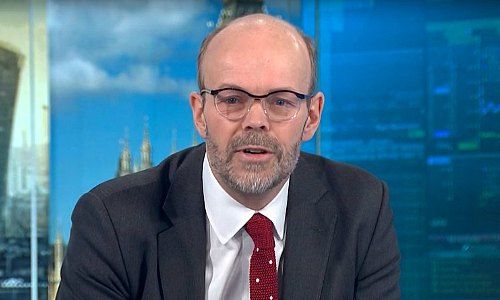GAM's suspension of star fund manager Tim Haywood is wreaking havoc on the Swiss asset manager. The company's risk management may be partly to blame, finews.com has learned.
Zurich-based GAM has begun picking apart star fund manager Tim Haywood's absolute return bond fund assets for sale. The proceeds are to be returned to investors, who have been clamoring for redemptions ever since Haywood was suddenly suspended six weeks ago.
The move raises four major questions. First: is the liquidation of GAM's flagship fund merely the tip of the iceberg in the opaque world of «unconstrained» investments, threatening to spill over into other asset managers?
Reasons Remain Unclear
Second: Will GAM clients also pull money from the asset manager's other boutique strategies? Third: Can GAM survive this crisis? And fourth: what are the real reasons for suspending Haywood?
finews.com spoke with former GAM employees as well as with asset managers in London, where the Haywood case is being scrutinized. The response to the first two questions – contagion and withdrawals spreading – was unanimous.
More Withdrawals
None of the people finews.com spoke to, who requested not to be quoted by name, felt that GAM's absolute return problems would spill over to other asset managers or threatens to tip into a major credit crisis. «It's a problem that only affects GAM,» one bond fund manager said.
However, the fund manager expects GA M's absolute return liquidation to be contagious within the firm itself. «We'll see several quarters of withdrawals,» he said. GAM's loss of independence also appears to be a foregone conclusion among its peers, as finews.com reported last month – answering the third question.
Doubled Down on Steel Bet?
The four question – why suspend Haywood, and imperil the firm, over seemingly trivial offenses – was partly addressed by a «Bloomberg» report. Haywood invested heavily in unlisted an intransparent securities linked to GFG Alliance, a company controlled by the Sanjeev Gupta.
The British-Indian industrialist has made a name for himself with attempts to revive and restructure Britain's steel industry. A trade finance firm controlled by Lex Greensill is also involved in Haywood's GFG investments, according to «Bloomberg».
Aussie Middleman
Greensill, an Aussie billionaire, acted as a middleman between Gupta and GAM. None of the firms commented on the report.
GAM has emphasized that Haywood didn't violate any investment guidelines. Instead, Haywood's suspension, backed by CEO Alex Friedman as well as GAM's board, was over the fund manager's behavior.
The 53-year-old Briton was a reliable fee generator for years, first for Swiss private bank Julius Baer, later for GAM. The asset manager now accuses Haywood of sloppy record-keeping, inadequate due diligence with some investments, and using private email for work, violating expense rules, and signing off on contracts alone when two signatures were required.
Lower Liquidity, Higher Risk
Haywood invested in credit with low liquidity, which generally carries a higher risk – and of course potential reward – for investors. It is also known that the absolute return bond funds managed by him performed badly this year, in line with the wider bond market.
- Page 1 of 2
- Next >>




































